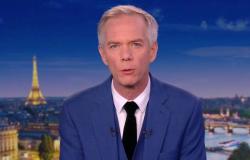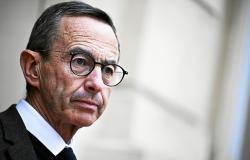The black currency market in Algeria continues to raise major concerns for the authorities and the population. Recently, the euro and the dollar experienced a further decline against the Algerian dinar on this informal market, marking a turning point in a context of ongoing economic reforms. If this development seems to open the way to a possible stabilization, it is however only a small sign in a broader and persistent problem which deeply affects the national economy.
According to the latest available data, on December 15, 2024, the 100 euro note traded at 25,700 dinars for sale and 25,400 dinars for purchase at Square Port Said in Algiers. The dollar, for its part, stood at 24,500 dinars for sale and 24,200 dinars for purchase. This slight drop compared to the rates of the previous week, where the euro was around 258 dinars for purchase and 260 dinars for sale, as well as the dollar around 245 dinars for purchase and 248 dinars for sale, surprised many observers. This Tuesday, December 17, the euro is trading at 252 dinars for purchase and 255 dinars for sale, while the dollar is offered at 240 dinars for purchase and 243 dinars for sale. While this fluctuation suggests a lull, it does nothing to address the root causes of the currency black market.
One of the most notable announcements from the Algerian government is the increase in the tourist allowance, which will be increased to 750 euros for adults and 300 euros for minors from 2025. This measure aims to respond to the growing demand from Algerian travelers, who have been complaining for years about insufficient allocations to cover their needs abroad. This gesture could have a direct impact on the demand for currencies on the parallel market. By facilitating access to euros and dollars through official channels, this reform could ultimately reduce dependence on the black market, which has grown mainly due to restrictions on access to foreign currencies.
Although this measure is seen as a step forward for Algerian citizens, it remains insufficient to completely resolve the problems linked to the informal currency market. Indeed, restrictions that limit access to currencies, particularly for businesses and money transfers, have long fueled this parallel market. While the tourism allowance might offer short-term relief, it is only a partial response to a much broader systemic problem.
The reform of the tourism allowance, although important, does not guarantee the end of the foreign exchange black market. Indeed, it continues to prosper due to the insufficient supply of currencies on the official market. The parallel market remains fueled by unmet structural demands: the need for foreign currency for travel, imports and money transfers, as well as the rigidity of rules that restrict access to foreign currency through official channels.
Experts emphasize that, to eradicate this phenomenon, deep and structural economic reforms are necessary. This includes in particular a progressive liberalization of the foreign exchange market, more transparent management of foreign currency reserves, and better market regulation. Without these comprehensive reforms, demand for foreign exchange will continue to far exceed supply, and the parallel market will remain an essential recourse for many Algerians.
The black currency market has a direct impact on the Algerian economy. It is often the only way for businesses and individuals to obtain the foreign currency needed for their activities. This situation not only leads to price distortion, but also a loss of confidence in the Algerian dinar, reinforcing the attractiveness of the euro and the dollar. In addition, dependence on the black market is a source of instability for economic agents and harms the competitiveness of the national economy.
The authorities, aware of this problem, have undertaken several initiatives to contain this phenomenon. However, the persistence of this parallel market shows the limits of current policies. Implementing measures such as increasing the tourist allowance and trying to boost the supply of foreign exchange through official channels are attempts to control this market, but they alone cannot solve the problem in any way. sustainable.
The recent decline of the euro and the dollar against the dinar on the informal market is a positive sign, but it does not indicate a radical change in the dynamics of the black market. Authorities continue to work on longer-term solutions to stabilize the situation. Increasing tourism allocation, improving access to foreign exchange through official channels and structural economic reforms are necessary steps, but the road remains strewn with pitfalls.
Also read:
Unusual. Algiers Airport: Imane Drazia takes the risk of missing her flight for a DZ dish (Video)
Two TikTokers make fun of Ali La Pointe and cause an outcry: justice seized (Video)
Miss France: Algerian Sabah Aïb would have lost because of a sentence





